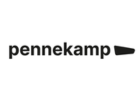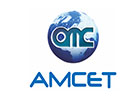Clear commitment to responsible corporate governance
Regular progress updates on sustainability
Focus on four UN goals: Health, diversity, sustainable production and climate protection
SCHOTT AG is a new participant in the UN Global Compact.
The United Nations confirmed that the international technology group is now included in the world's largest and most important initiative for sustainable and responsible corporate governance.
As an internationally active technology group, SCHOTT is aware of its special responsibility for sustainable development. The company would also like to make a clear commitment to the public for sustainable corporate management.
"We are implementing our sustainability strategy throughout the company and together with our partners," said Dr. Frank Heinricht, CEO of Schott AG. "Economic activity must be reconciled with ecological considerations and social action. For us, these are fundamental components of sustainable corporate management."
To that end, SCHOTT has joined the United Nations Global Compact (UNGC). This is the United Nations’ appeal to companies to orient their business processes and strategies to ten universally-accepted principles in the areas of human rights, labor, environmental protection, and anti-corruption.
"We are committed to upholding human rights, creating fair working conditions, promoting environmental and climate protection, and opposing all forms of corruption and bribery," explained David Klein, Manager of the SCHOTT Sustainability Program. "As a foundation company, SCHOTT has already taken a wide range of steps towards greater sustainability in the past. By joining the UNGC, we aim to deepen this commitment further."
Clear commitment to greater sustainability: focus on four UN goals
In order to shape a more sustainable future, the UN is calling on companies worldwide to commit to the Sustainable Development Goals (SDGs). Detailed in their 2030 Agenda, the United Nations adopted 17 global SDGs that consider three dimensions of sustainability: economic, ecological, and social. Given these three dimensions apply to all states and social actors worldwide, the global Sustainable Development Goals make it clear that everyone shares a common responsibility.
SCHOTT aims to fulfill its responsibility here, as well. Based on its sustainability strategy, SCHOTT is focusing on the four SDGs where the company can make the greatest contribution:
SDG 3 Health and well-being: SCHOTT's products enable new diagnostic and treatment options to be developed and people to be supplied with medications safely. The safety and health of employees, as well as all partners in the supply and value chain, have the highest priority.
SDG 5 Gender equality: The foundation statutes of 1896 guaranteed social rights that were unique at the time – and pioneering for the future. Today, the Group promotes a family-oriented HR policy as well as equal opportunities, diversity and inclusion for all people. For instance, one of the company’s goals is to increase the proportion of female employees to at least 23% by 2026, particularly at the top two management levels.
SDG 12 Sustainable consumption and production: Responsible use of resources is part of SCHOTT’s sustainability strategy: The company has reduced water consumption, waste, and emissions for decades. Solutions in the circular economy are now driven forward – innovative processes are being developed in pilot projects together with customers and reprocessing companies. The vision: to reprocess used products in such a way that they can be ecologically and economically reintegrated into the production process.
SDG 13 Climate protection measures: As an energy-intensive company, SCHOTT is aiming to achieve climate neutral production by 2030 (Scope 1 and 2, GHG Protocol). On the way towards climate neutrality, the Group acts according to the principle of "avoid - reduce – compensate." The development of new technologies is intended to eliminate the use of fossil fuels in the long term.
Regular updates on developments and challenges
SCHOTT will provide regular updates on its progress not only to the UN Global Compact but the public as well. Founded in the year 2000, the UN Global Compact is a multi-stakeholder platform for the development, implementation, and disclosure of responsible business practices.
It is the largest initiative for sustainable business management worldwide – with more than 15,000 companies and 3,000 other signatories in over 160 countries.



























